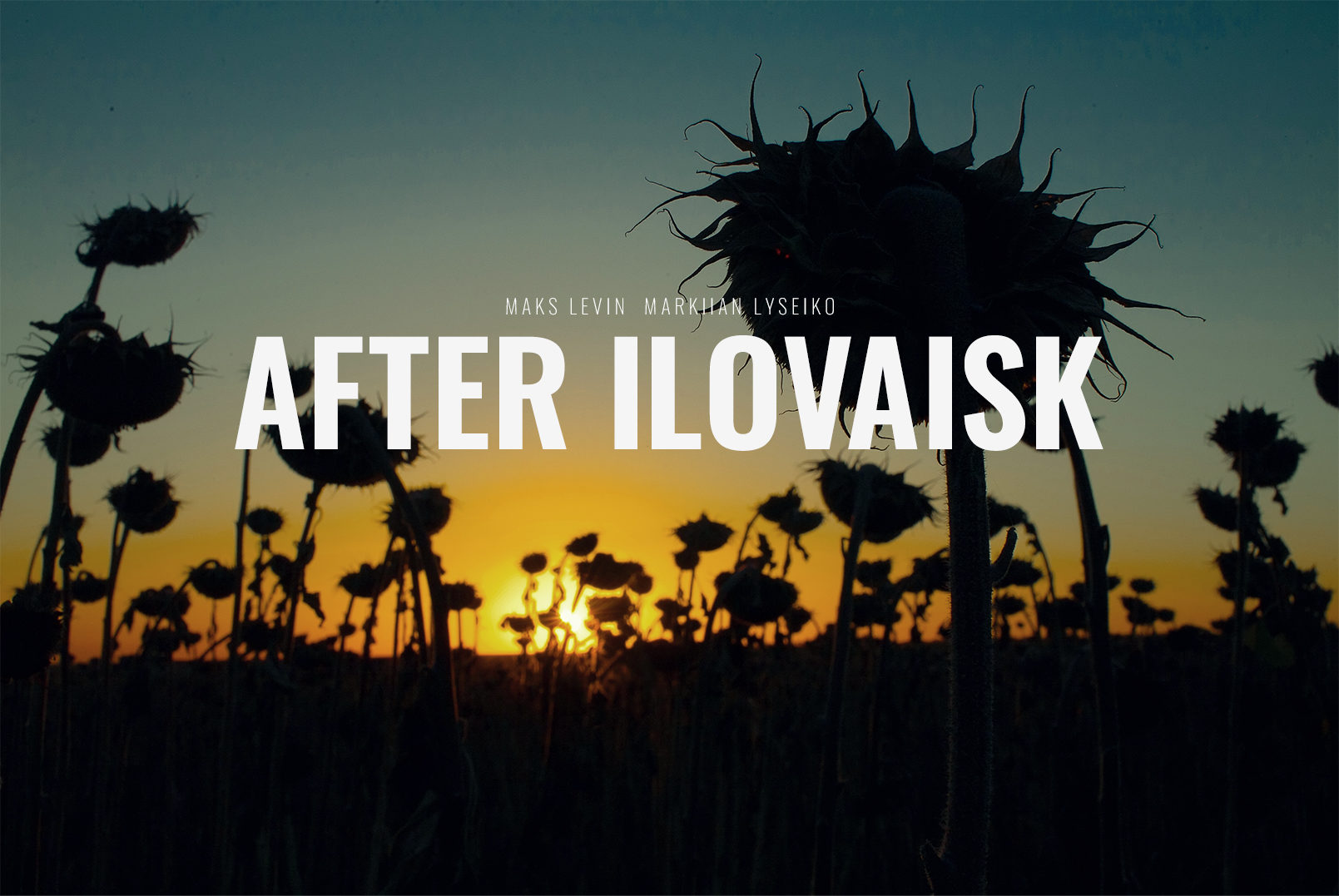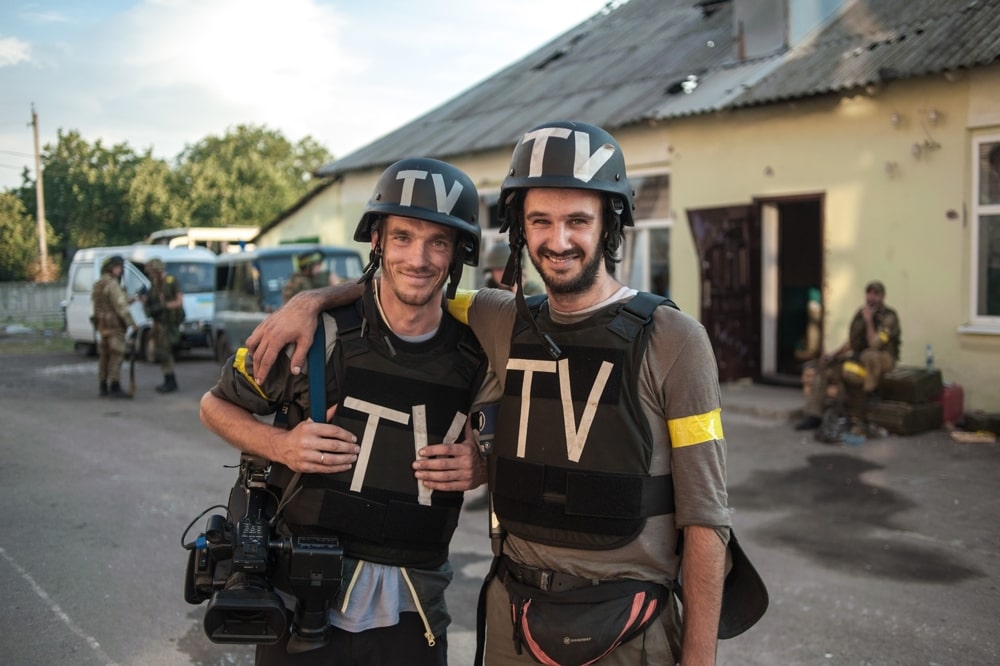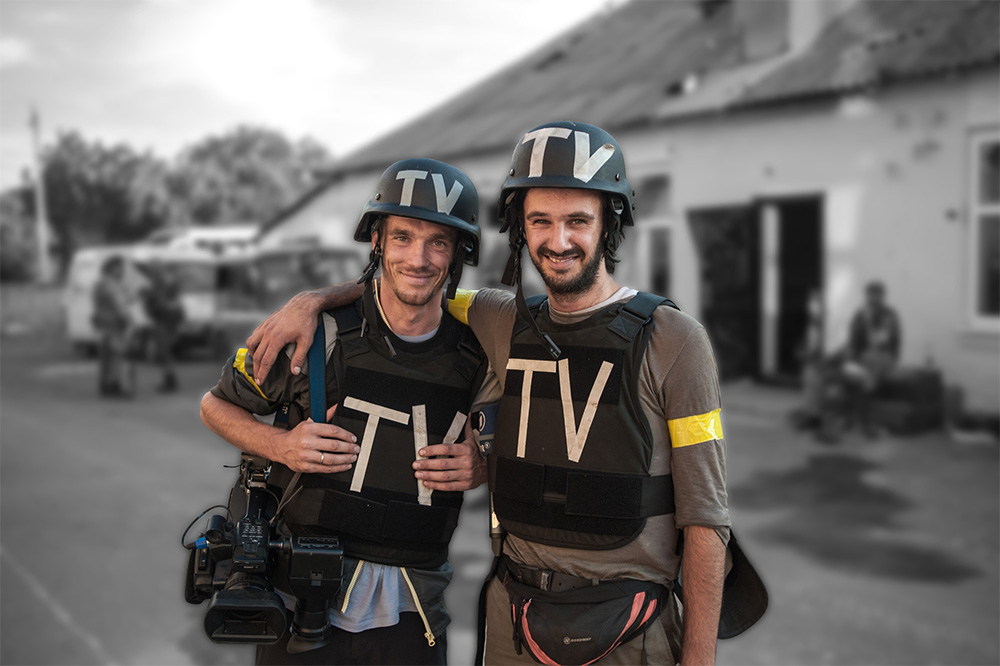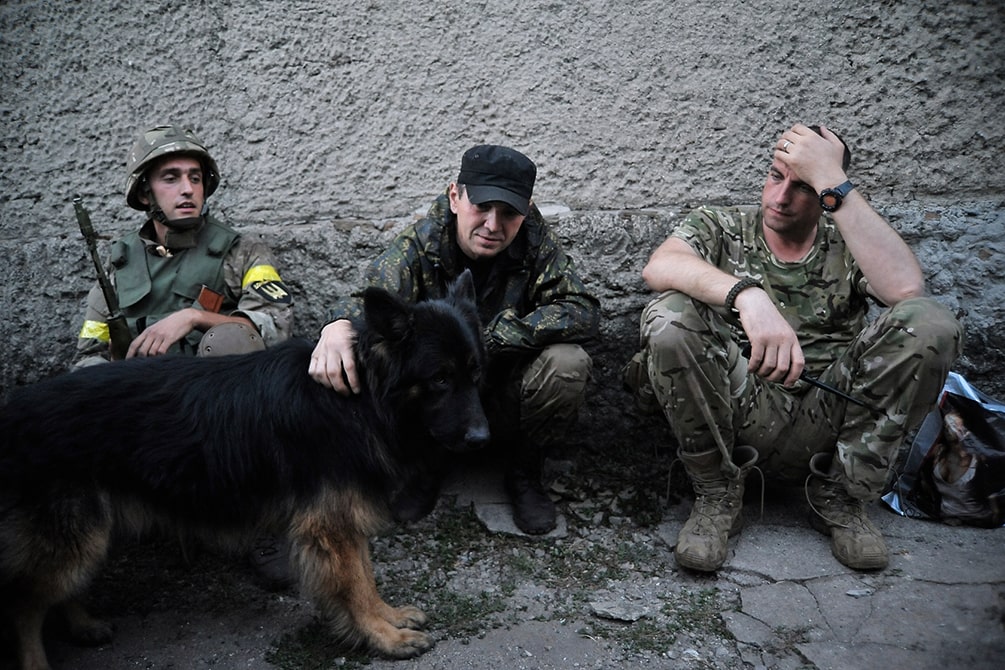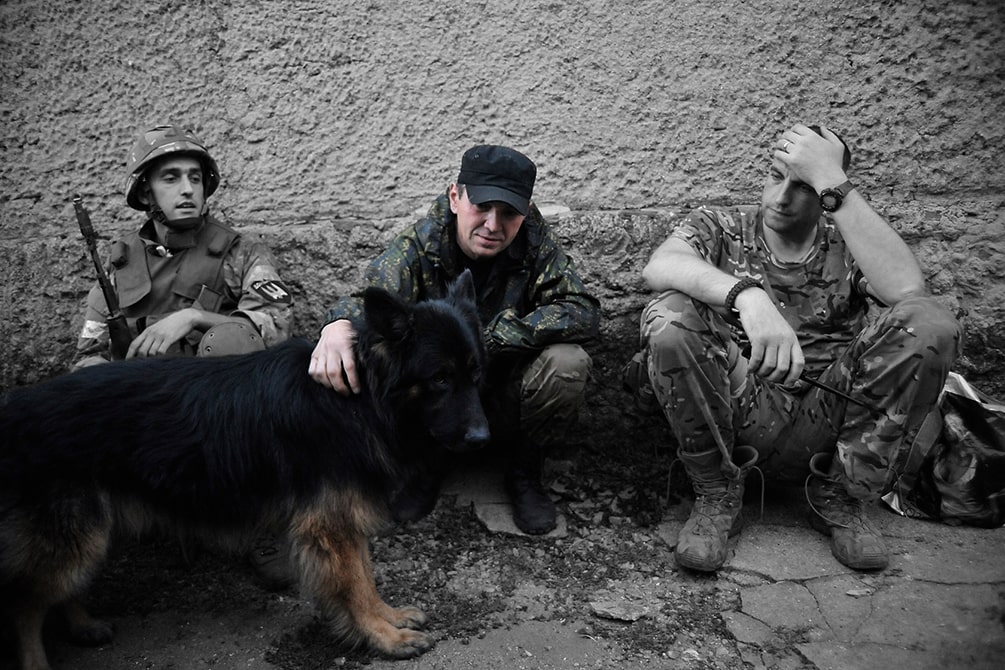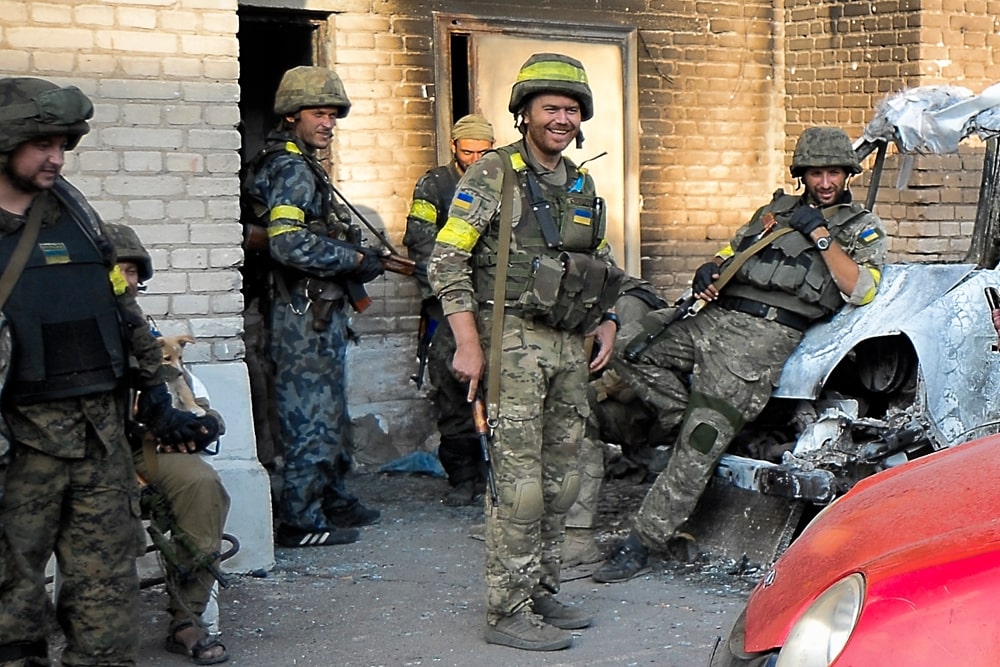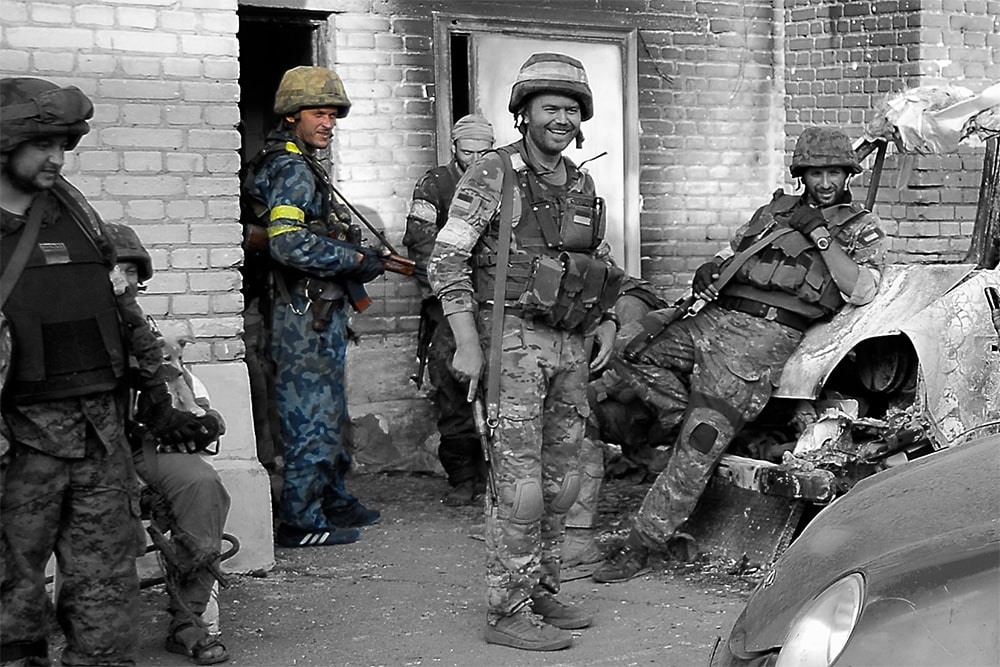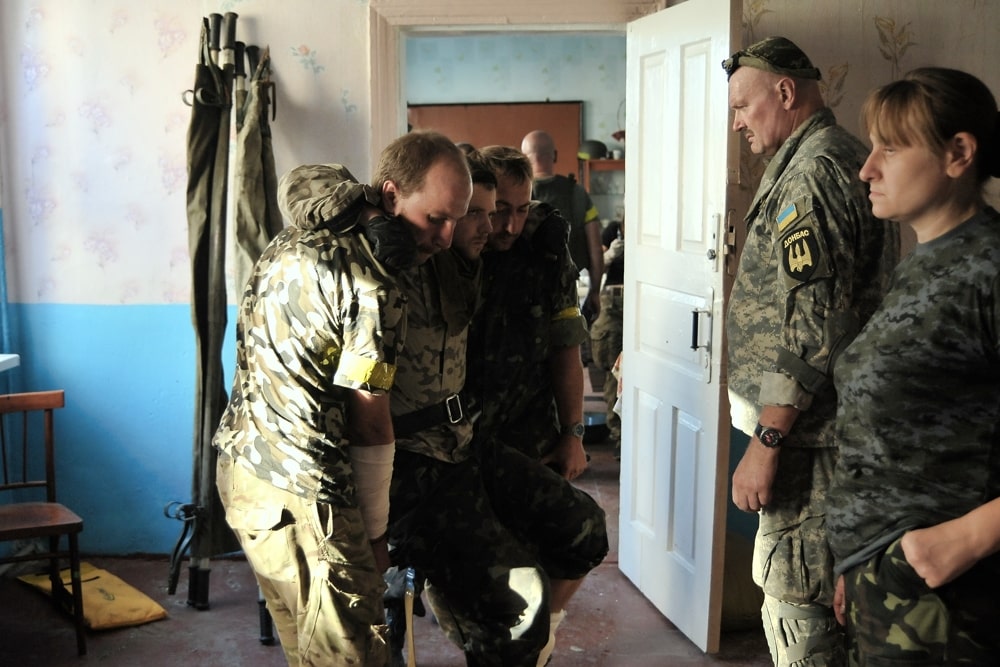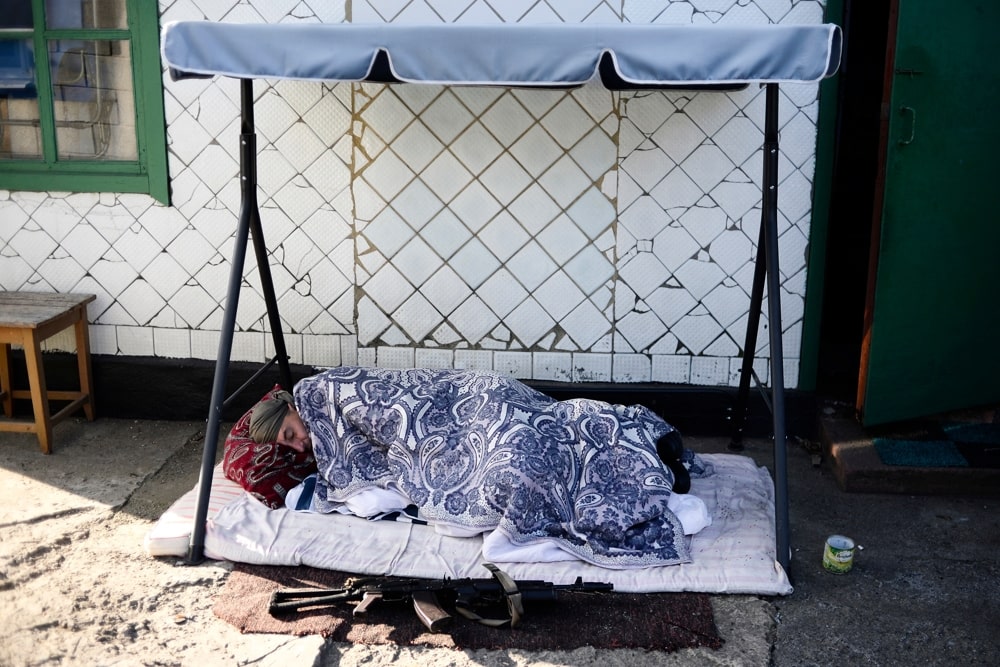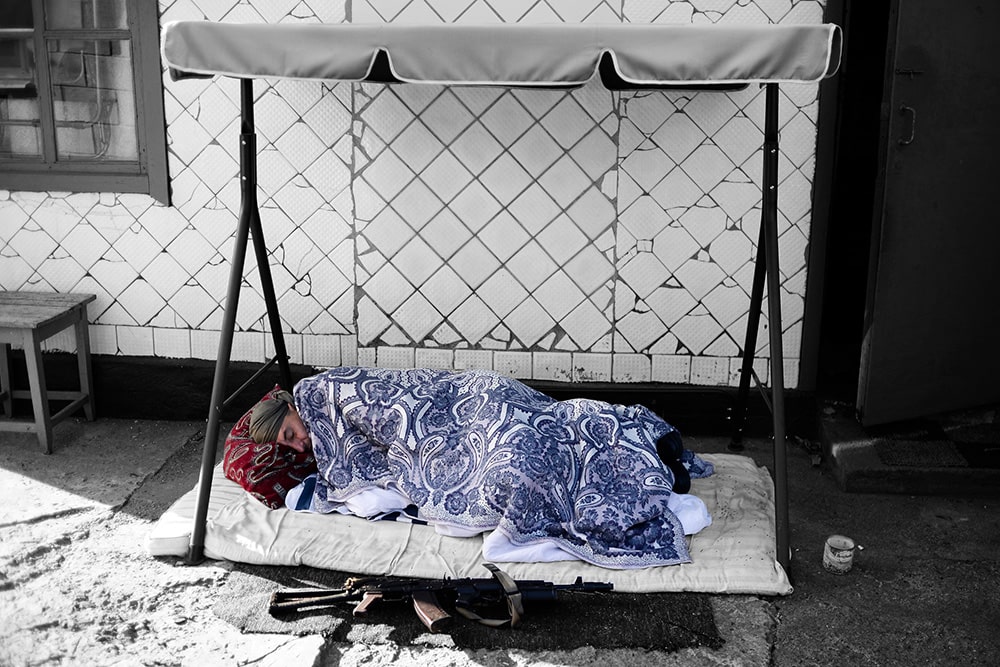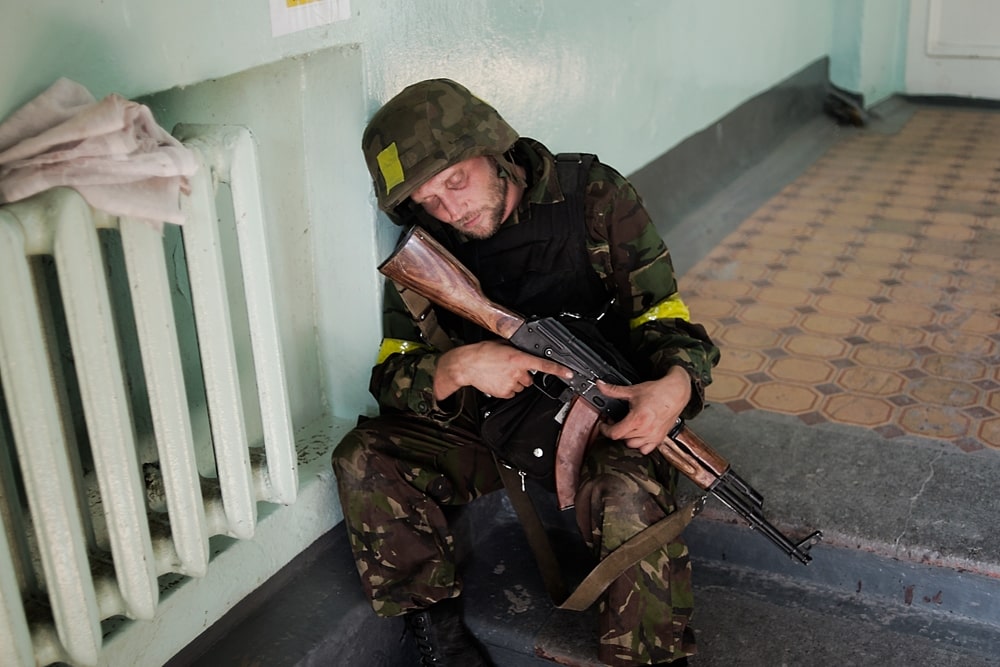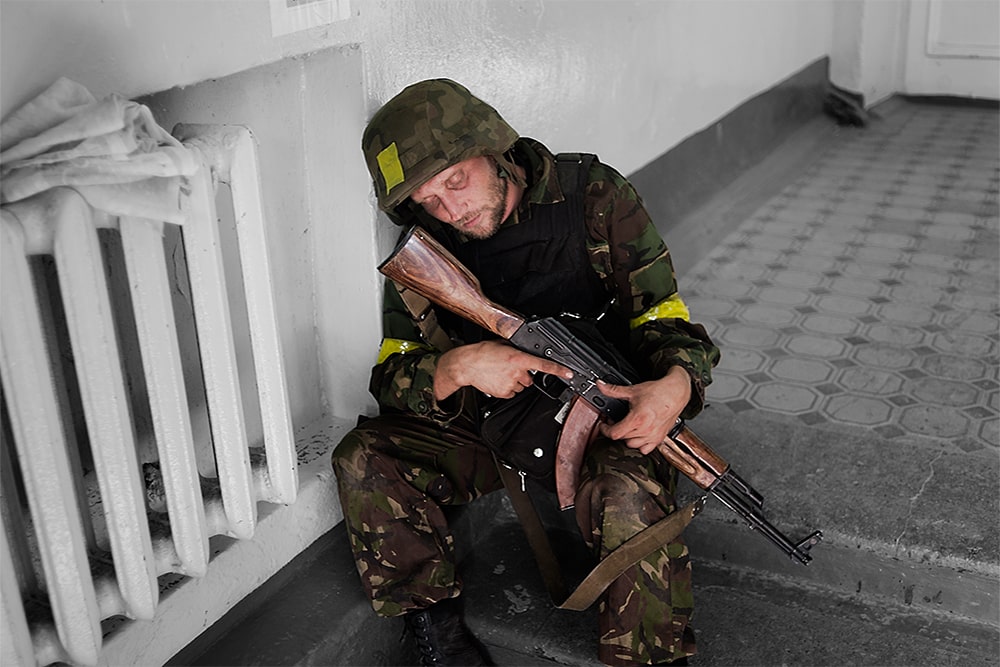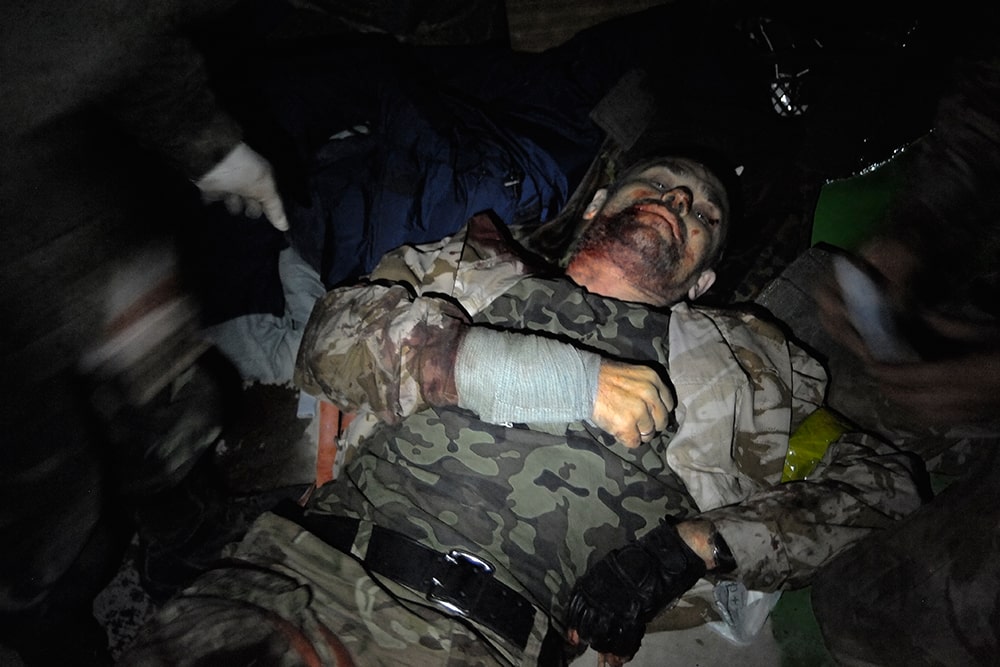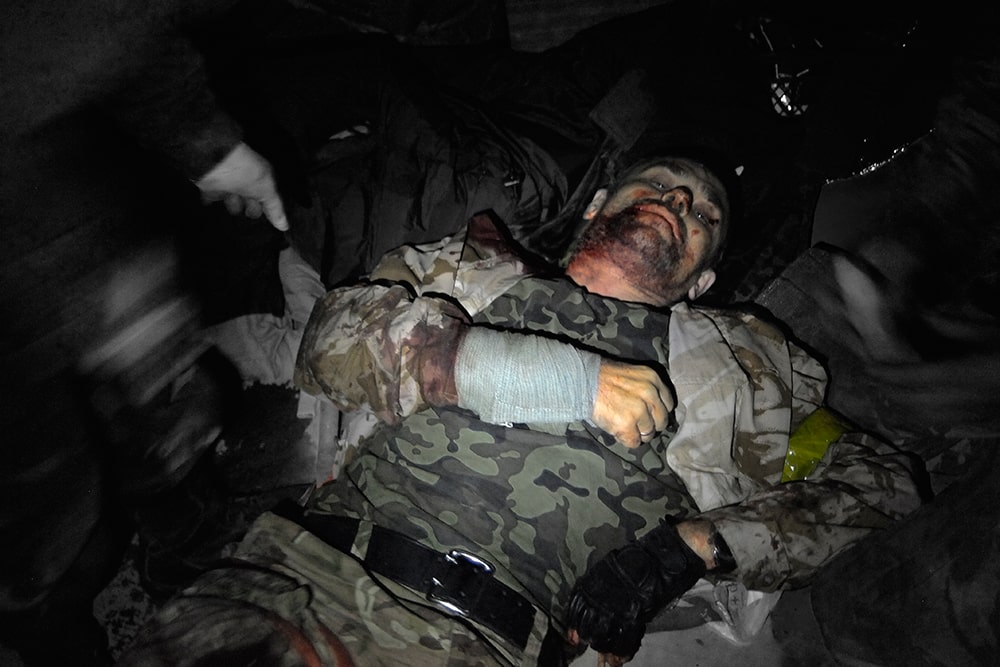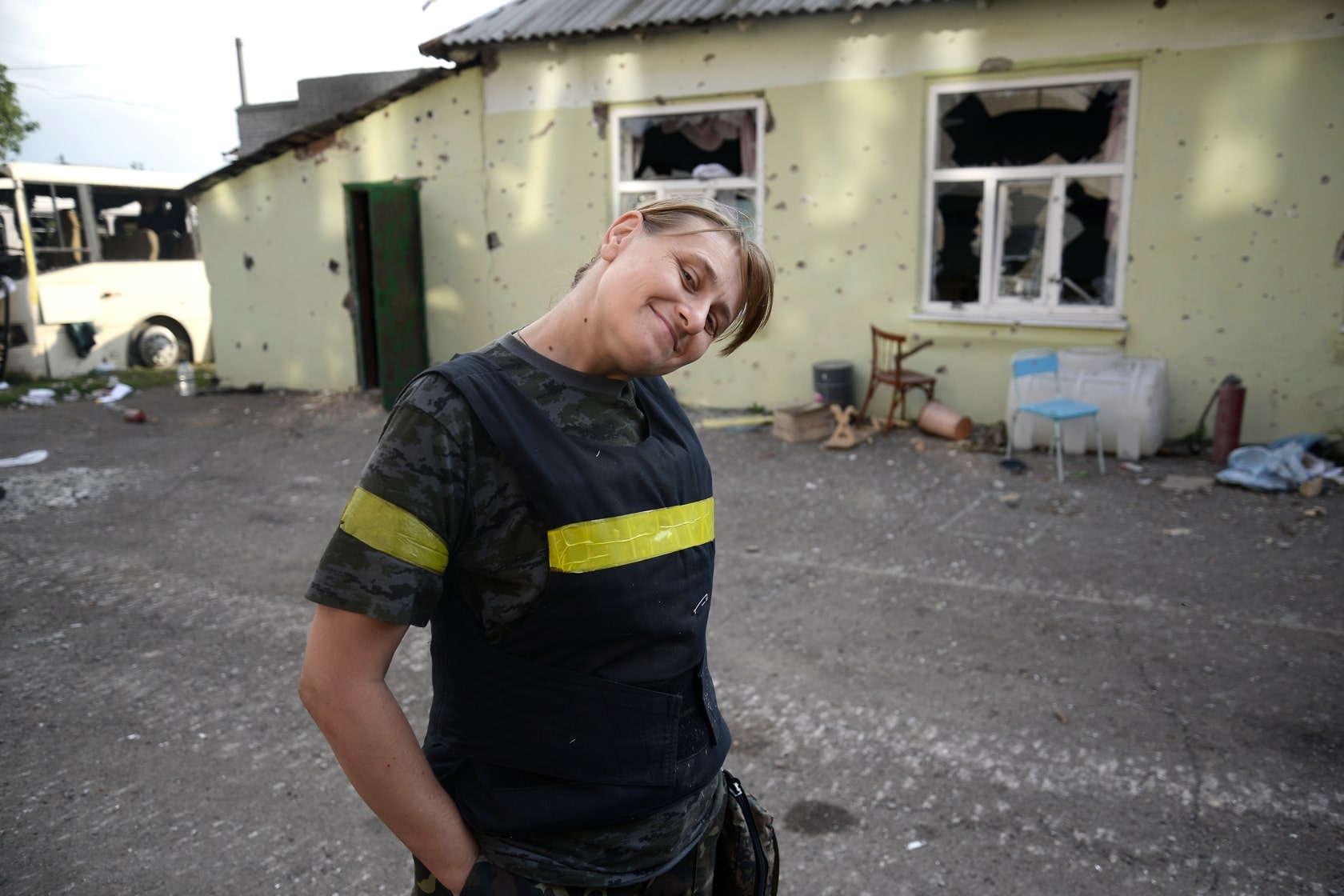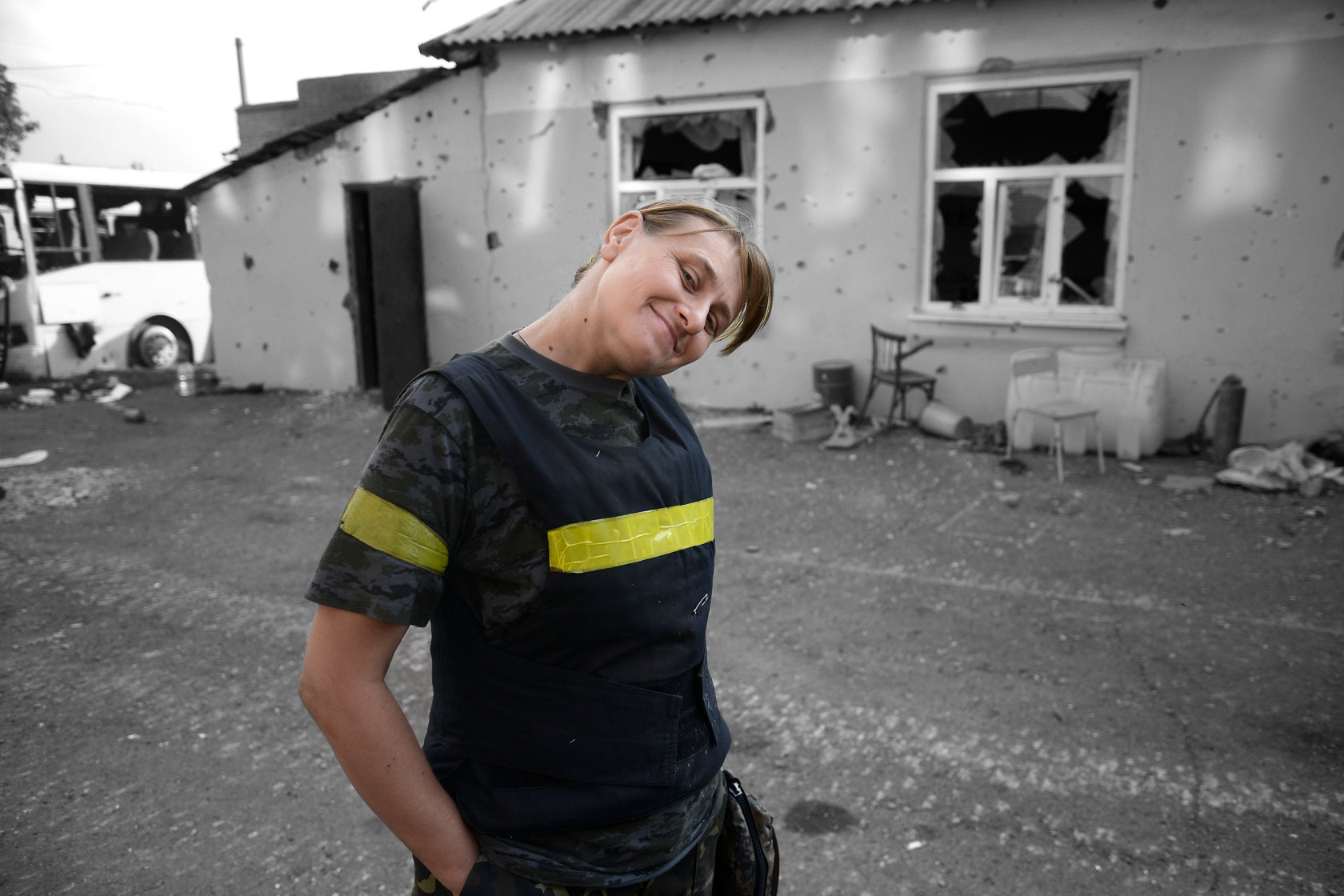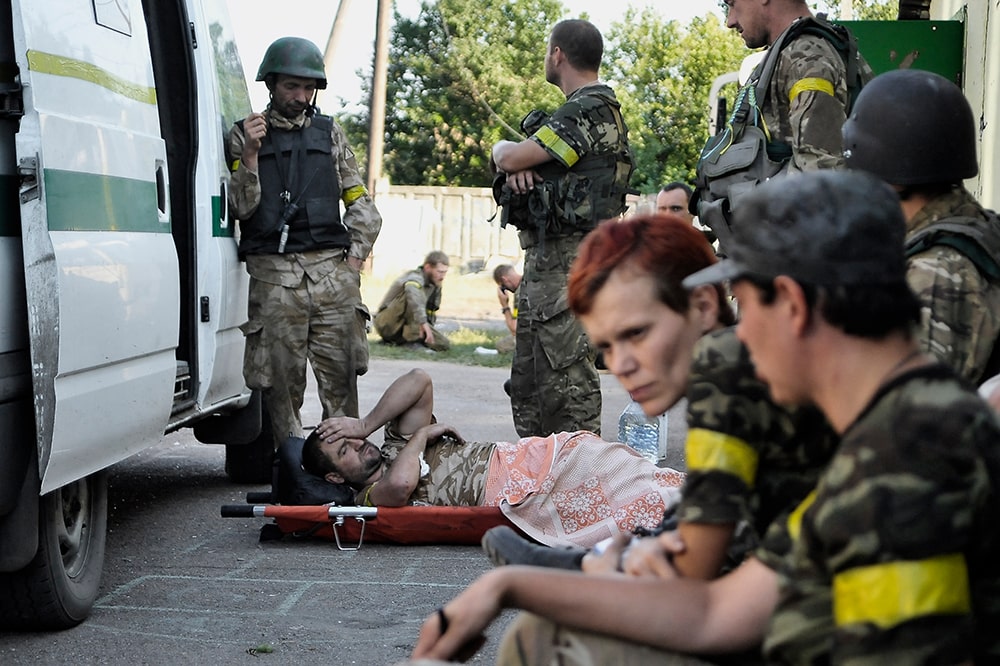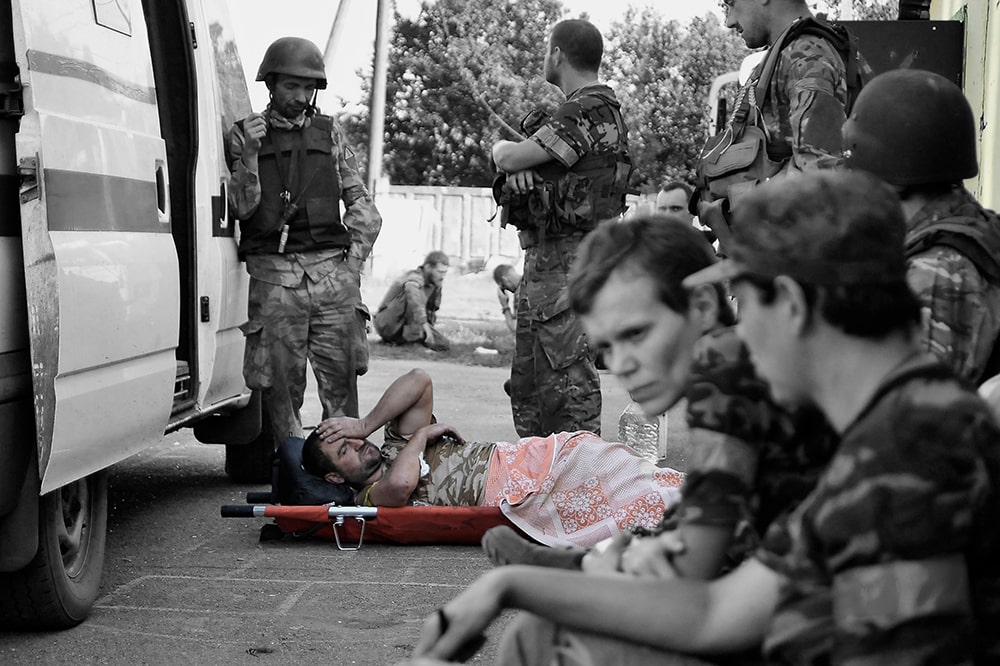Oleksandr Sarabun, codename “Vinnytsia”, “Donbas” battalion
Soldiers ran over to us, "Who is this?" "Who is this?" And someone said, "The wounded ukrops from Ilovaysk." The men shouted at him, "Fuck, you should have killed them, they had killed so many of our men!" They started recording video on their cell phones, and someone told them, “Did you think they were a sheeple? They are warriors, they know what they are dying for. And what are we doing here?” I thought, "Holy shit! A Russian man is saying such things."


